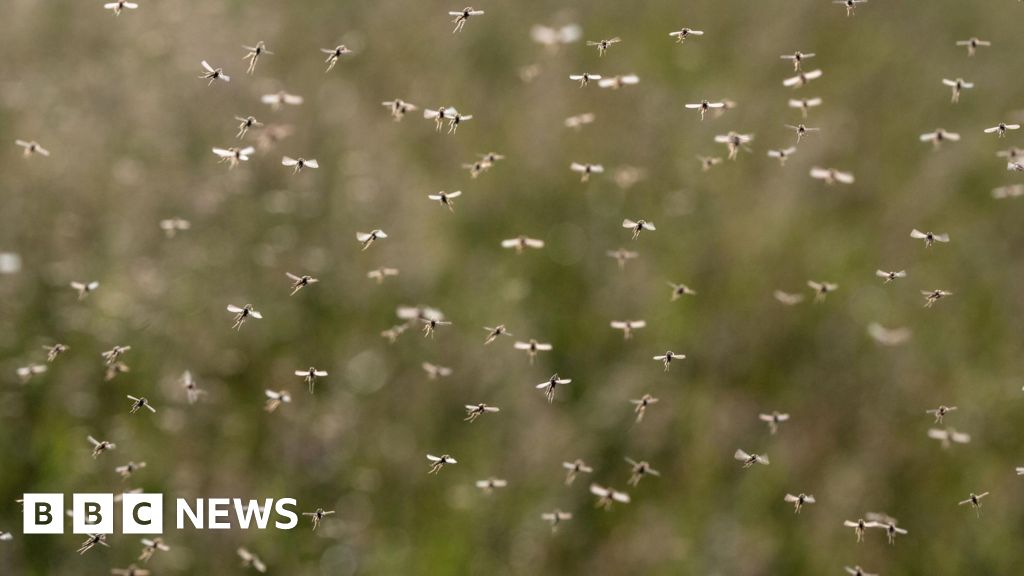Image source, Getty Images
Scientists have warned that unless urgent and drastic action is taken to stop drug-resistant malaria becoming widespread in Africa, millions of lives are at risk.
A malaria parasite that can defy the key drug artemisinin has now become established in East Africa.
In some areas, resistance rates have risen sharply from less than 1% to more than 20% in three years.
The last time, antimalarial drug resistance spread in Africa, tripling the number of child deaths.
Artemisinin kills the malaria parasite and is the cornerstone of treatment.
Artemisinin-resistant parasites first evolved in Rwanda, Africa, and then independently in Uganda and Eritrea.
These resistant parasites are spreading within countries and across borders.
Currently, more than 10% of malaria cases in Ethiopia, Eritrea, Rwanda, Uganda and Tanzania are caused by resistant parasites.
“The time to act is now before millions of people die from increasingly ineffective antimalarial treatments,” said Olugbenga Mokwuol, professor of paediatrics at the University of Ilorin in Nigeria.
Image source, Getty Images
In 2016, resistance was almost nonexistent in northern Uganda. By 2019, more than 20% of parasites tested in some areas were resistant.
The scientists say the further spread of these resistant parasites is “inevitable.”
Dr Mehul Dorda of the Mahidol Oxford Tropical Medicine Research Unit in Thailand said it was still uncertain how quickly that would happen.
But a similar phenomenon is already occurring in Southeast Asia, where artemisinin-based treatments are beginning to prove effective.
“It took 10 to 15 years from when it was first discovered to become overwhelmingly prevalent,” he said.
Lessons from history
This has happened before: The parasite developed resistance to an older drug, chloroquine, in East Africa in the 1970s, and by the 1980s resistance had spread to the West Coast.
Malaria deaths on the African continent have tripled, from about 493,000 in 1980 to 1.6 million in 2004.
“I hope that this doesn’t happen in Africa,” Dr. Dorda told me.
“If artemisinin combination therapies start to fail, the number of infections and deaths will rise.”
The authors make a series of recommendations aimed at both the parasite and the mosquitoes that spread the disease.
They propose adding a third drug to artemisinin combination therapy to make it harder for the parasites to develop resistance to the treatment.
Dr Dolda said this would cost money, “so it might cost a little more now, but otherwise it would end up costing a lot more to control the fires than it would to put them out before they spread”.
- Expanded coverage of insecticide-treated bed nets and long-acting insecticide sprays in homes
- Vaccinating people of all ages (not just children) with the newly developed malaria vaccine in areas where artemisinin-resistant malaria occurs
- Supporting local health workers and ensuring everyone can receive care close to home
- Ensure that data on the spread of resistance is shared promptly; currently, there can be long delays.
“We urge donors, particularly the Global Fund to Fight AIDS, Tuberculosis and Malaria and the US Government’s President’s Malaria Initiative, to be proactive and increase funding for malaria control and elimination programs to halt the spread of artemisinin resistance in Africa,” said Ntuli Kaporogwe, Director General of Preventive Services at the Tanzania Ministry of Health.


